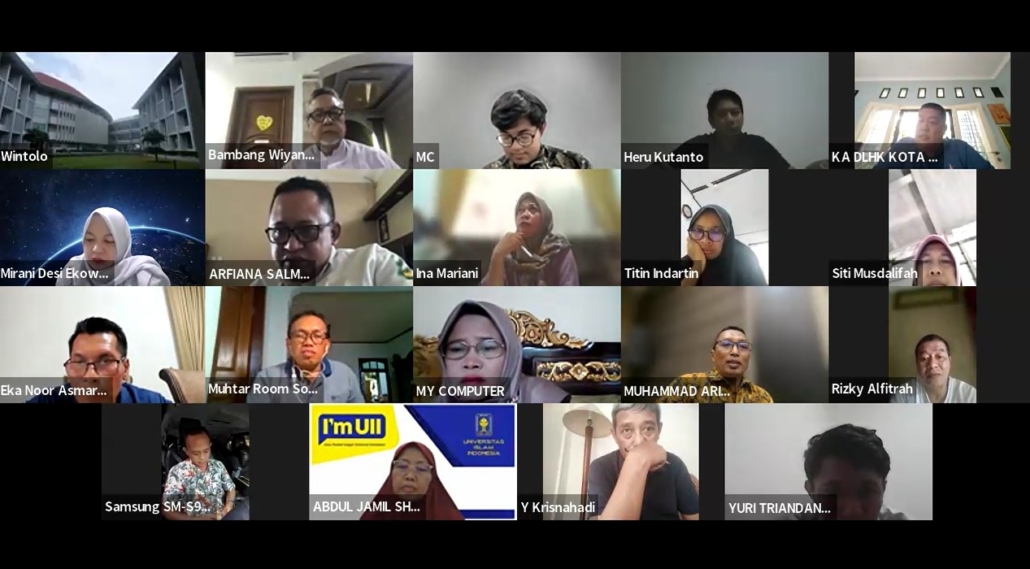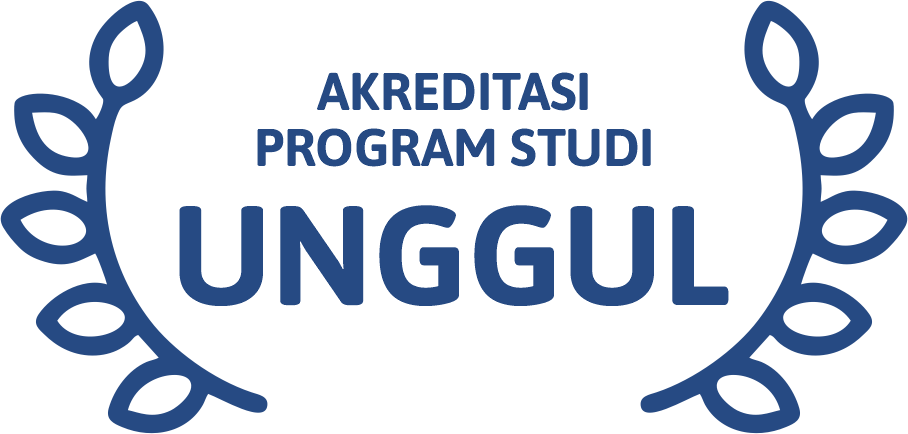Parent/Guardian Audiences Regarding the Evaluation of Student Studies in the Undergraduate Law Program at the Faculty of Law, UII
On Saturday, December 14, 2024, the Undergraduate Study Program in Law Program at the Faculty of Law, Universitas Islam Indonesia (UII), held a meeting with parents/guardians of students from the 2018, 2019, and 2023 cohorts. This activity aimed to provide information and solutions regarding the study period of students at the Faculty of Law, UII, particularly for those in the 2018, 2019, and 2023 cohorts. The event, held online via Zoom Meeting, is a routine annual agenda to provide updated information regarding students’ studies to parents/guardians. This event was conducted in two sessions; the first session was a meeting with parents/guardians of the 2018 and 2019 cohorts, while the second session was with parents/guardians of the 2023 cohort. The activity, which began at 1:00 PM WIB, was not only attended by parents/guardians of students but also by students, lecturers, and education staff of the Faculty of Law, UII.

After the agenda was opened by the Master of Ceremony, the meeting continued with a speech by the Head of the Undergraduate Law Program, Dodik Setiawan Nur Heriyanto, S.H., M.H., LL.M., Ph.D., who stated, “We from the Undergraduate Law Program would like to extend our ties with all of you, especially the families of students from the 2018, 2019, and 2023 cohorts. On this occasion, we will conduct a study evaluation, particularly concerning the academic performance of your children. This is part of UII’s characteristics, where we continuously conduct evaluations so that you can understand the academic progress of your children. Remembering that your children are from the 2018 and 2019 cohorts, we need to announce that the maximum study period for the 2018 cohort is July 2025, while for the 2019 cohort, it is July 2026. For the 2018 cohort, please ensure and evaluate if there are still courses that need to be taken and the final thesis hasn’t been started. Given the limited time, we suggest transferring to a campus with a lower passing grade than UII, where your children can continue their studies and still have the opportunity to earn a bachelor’s degree. However, if the student has already completed the theoretical coursework and is currently working on the Final Thesis, we encourage them to continue and be supervised so that it can be completed before the set deadline. Additionally, we also hope that parents/guardians can increase their personal approach to their children so that students will be open about their study progress and other matters.” This was the speech from the Head of the Undergraduate Law Program, Faculty of Law, UII.

The event continued with an academic explanation presented by the Head of the Academic Division of the Faculty of Law, UII, Muhammad Arief Satejo Kinady, A.Md., who mentioned that “proper supervision is needed for students, especially those struggling academically. It’s necessary to provide assistance to students during their study period and to be aware of their academic status. Students can retake courses in the next semester if they fail to meet the required attendance and academic performance. Additionally, students also need to pay attention to the preparation of their final thesis and the importance of uploading their work to the provided information system. The role of parents is also needed in monitoring the academic performance of their sons and daughters so that they can report any problems to the Faculty of Law, UII.” This was the explanation from the Head of the Academic Division of the Faculty of Law, UII.
After the explanation was given by the academic representative of the Faculty of Law, UII, the event continued with a discussion and Q&A session with parents/guardians of the 2018, 2019, and 2023 cohorts. It is hoped that this activity can monitor study progress and establish intensive communication between parents/guardians and the study program. For students who are unable to complete their studies on time, it is recommended to immediately take alternative solutions, including transferring campuses. It is advised that the academic staff and students build more intensive communication.







